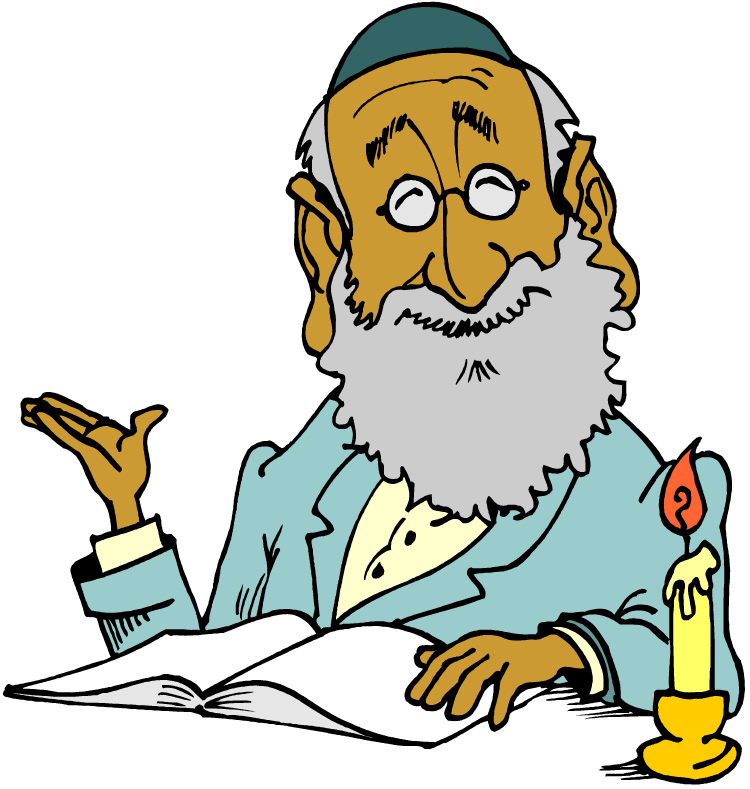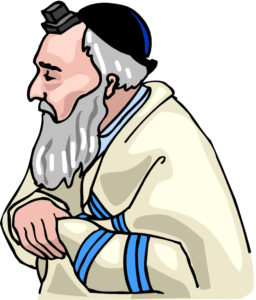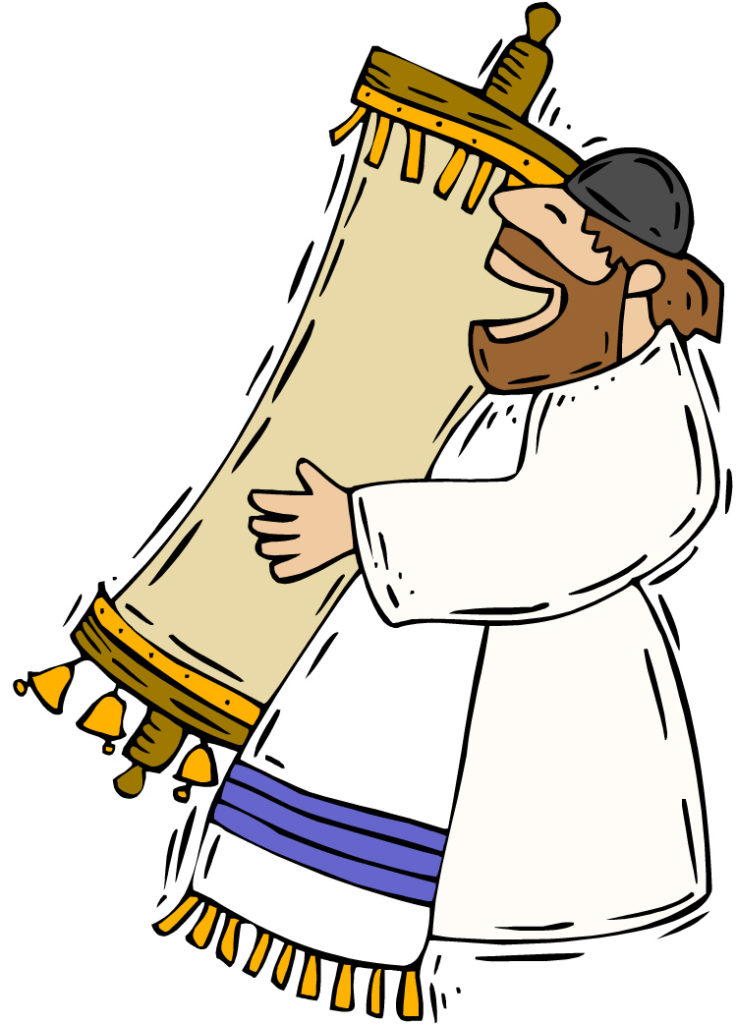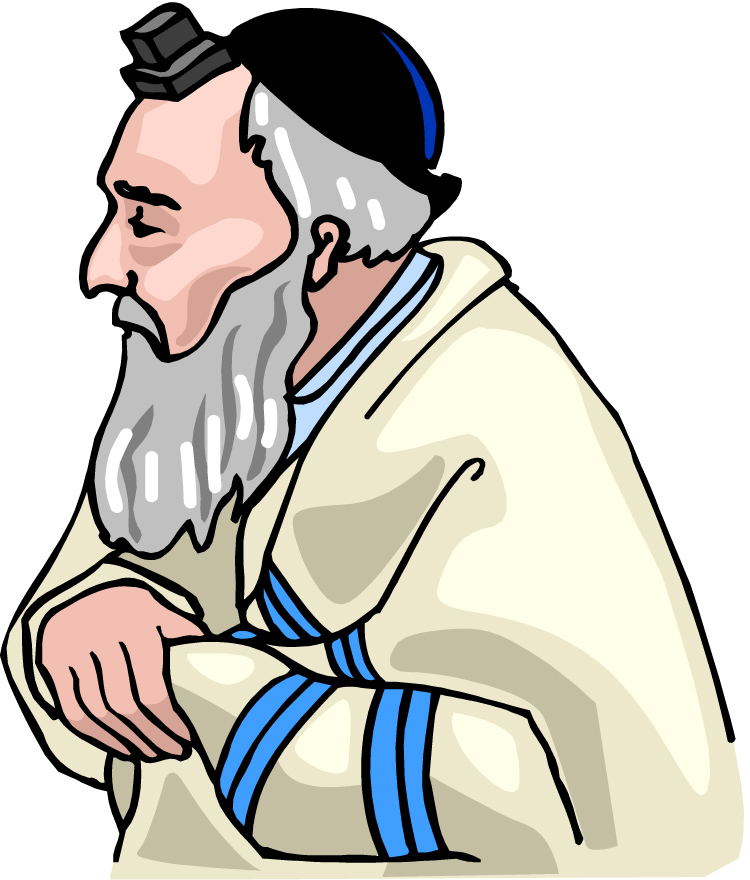Tag Archives: Rabbinic Judaism
Secular Humanism (Pt. 3) Exposing It & Defeating It
In part 3 of this video series on secular humanism, we trace the rise of this religious, satanic philosophy through the Bible and how it has even infected mainstream Christianity in the post-apostolic era as well as modern rabbinic Judaism. But we don’t stop there merely identifying the problem. No! Now that we have taken two previous videos to identify the problem including secular humanism’s source and origin and modern manifestations, we know reveal the solution to stopping this satanic, unbiblical religious philosophy and what YOU can do about it in YOUR own life. This is critical intel to have in order to be a wise and effective foot soldier in Yeshua’s end time spiritual army that is preparing the way for his second coming!
The Oral Torah or Talmud—Good or Bad?

Deuteronomy 17:8–13, Matters of controversy. How respectful and obedient are you to the spiritual leaders YHVH has placed over you? Or do you follow their wise counsel only if and when it suits you? Nowadays if one does not like congregational leadership for any reason, they simply leave that congregation and find a new one. In ancient Israel, this was not an option, nor was it an option in the first century. There was only one congregation in each town, and if there was a disagreement, people had to learn to work out their differences. What if we were in that situation today? How would that change your method of operation if you couldn’t just “cut and run” whenever things didn’t go your way or you got offended?
Rabbinic Justification of the Jewish Oral Torah Known as The Talmud. This Scripture passage has been used by Rabbinic Jews as a justification for their so-called Oral Torah, or as Yeshua referred to it as “the tradition of the elders.” This oral tradition was eventually put into written form in the second century A.D. and was known as The Mishnah, which eventually evolved into The Talmud, which came hundreds of years later. Other Scriptures the rabbinics use to substantiate their claims regarding the legitimacy of their Oral Torah include Deuteronomy 1:16; Exodus 24:12; 34:27 (See Everyman’s Talmud, p. 146). Yeshua and the apostolic writers make references to the Oral Torah as well (see Matt 5:21, 27, 31, 33, 38, 43; 12:5; 23:2–3; 1 Cor 14:34; 1 Tim 1:14).
So what is the bottom line here? Are the saints supposed to follow the Oral Torah or not? These are some guidelines on how to view any non-Scriptural rabbinic Jewish writings: First, does it contradict or line up with the Written Torah-Word of Elohim? If not, then reject it. Second, does it point us to Yeshua the Messiah or away from him? If not, reject it. Third, is it historically accurate or is it fable and legend? If the latter, then it should probably be rejected. Finally, was it written during the Second Temple era or afterwards when many rabbinic Jewish took a decidedly anti-Christian and anti-Yeshua bent? If the latter, then take it with a grain of salt—with a high degree of scepticism.
Frankly, studying the Bible itself with the guiding help of the Spirit of Elohim and Spirit-led, Yeshua-believing and Torah-obedient teachers should be sufficient to give the saint the information they need to have a right relationship with YHVH Elohim through Yeshua the Messiah (see John 14:26; Eph 4:11–16; 1 John 2:27). Extra-biblical sources like the Talmud can be helpful for historical background information on a few subjects, but is of little value beyond that, in my opinion.
Finally, the purpose of the judges in Israel as per Deuteronomy 17:8–13 was to apply and interpret the Torah to everyday life situations, and not to change the Torah or add to and subtract from it, which the Jewish Oral Torah often does. This is elevating the mind and traditions of man above the Word of Elohim, which both the Torah (Deut 4:2; 12:32 cp. Rev 22:18) and Yeshua forbid (Mark 7:8–13), and which, quite frankly, is idolatrous, humanistic and feeding from the tree of the knowledge of good and evil instead of feeding from the tree of life and, therefore, is an evil practice.
Answering the “Rabbi’s” Daughter

The following comment came into this blog’s comment section today. I permitted it to be posted as an opportunity to comment. The writer purports to be the daughter of a “rabbi” whatever this is supposed to mean. By her comments, she is not a believer in Yeshua the Messiah, but proffers arguments against Yeshua’s Messiahship from the Orthodox Rabbinic Jewish perspective. Her arguments, though seemingly convincing on the surface, are actually quite shallow and easily refuted. Her knowledge of Scripture is superficial and of Jewish history is lacking, I point out in my rebuttal.
The reason I post this is for your education, so that you can help any fellow believers you know who are being swayed by the Antimissionary arguments of the rabbinic Jews.
Elsewhere, I have written extensively on some of the subjects she brings up. At the end of this post, I will post some links for those who care to go further.
Now here is the comment from the “rabbi’s” daughter:

Most people dont realize the role of Messiah, who have come o/o christianty and into a melting pot of teachings of which most only hold partial truth. Take into account the original language in which the Scriptures were written i.e. Hebrew, Aramaic… There are some words that were not translated but transliterated. The world “Messiah” is one of those words, from the Hebrew Mashiach. In Greek it is Christos. I know I’m preaching to the choir on this but let me explain to help you understand. So what does Messiah or Christ mean? It means someone who was anointed or SELECTED by YHVH ELohim, the Father, as ruler, king (1Kings 2:10-12). Hence, in the bible there are many Messiah’s. Examples: The temple priest Lev. 4:3, 6, 16, 6:22; The patriarchs Ps. 105:15; 1 Chron. 16:22; King Saul 1 Sam. 12:3, 5; 24:6, 10; 26:9, 11, 16, 23; 2 Sam. 1:14, 16, 21; King David 2Sam. 19:21; 22:51; 23:1 Ps. 18:50, 20:6, 28:8; King Solomon once in 2 Chron. 6:42, the pagan king Cyrus Isa. 45:1, the future messianic figure 1 Sam. 2:10, 35, Ps. 2:2, 89:51; 132:10, 17; Dan, 9:25-26; Hab. 3:13. AS you can see there are many “christs/messiahs” who preceded Y’shua. The title Messiah can not mean Hashem ELohim Himself, because Messiah or Christ (anointed) is the AGENT of the One True God (John 17:3) As messiah Y’shua/jesus, who is prophet, priest and king. That’s because The Father anointed him above all predecessors i.e. his companions Heb. 1;9. It is for this reason that Y’shua taught men to pray each day for the coming Kingdom of his ELohim, YHVH, and Father (Matt. 6:10)
The role of the Messiah(s) throughout all of the ages was to point mankind BACK to the FAther and to His Torah.None of the prophecies of Daniel nor any other biblical prophet relate to Yeshua/Jesus nor to the Christian writings.
Allow me to be more clear:
Jesus never reigned as King of Israel. Messiah will.
Jesus never ruled as judge of Israel. Messiah will.
Jesus did not rebuild the Temple. Messiah will.
Jesus did not bring all Jews Home to Israel. Messiah will.
Jesus did not establish world peace. Messiah will.
Jesus did not end warfare. Messiah will.
Jesus did not oversee the Torah being written on the consciousness of the world. Messiah will.
Jesus’ followers increased antisemitism, he did not destroy it. Messiah will end it.Jesus did not end world hunger. Messiah will.
Jesus did not bring idolatry to an end. Messiah will.
Jesus not bring global justice. Messiah will.
Jesus not restore the Ten Houses. Messiah will.
Jesus did not end all diseases. Messiah will.
Jesus never sat on the throne of David. Messiah will.
David was not his paternal father/anscetor as required of Messiah, Messiah will will be a paternal descendant of David haMelech.
Jesus did not lead all Jewish into becoming Torah observant.
Without a Jewish father Jesus had no Land Rights in Israel. Messiah will.
Jesus was not accepted by our sages and rabbis. Messiah will be.
There are SOOO many prophecies and conditions Jesus did not meet! Several people have come much closer than he. David Ben-Gurion came MUCH closer and he was not even religious! This is why the Christian apologists had to draw on the baseless claim of a “second advent.” Nothing in Scripture supports that. Messiah, when he comes, will establish Israel and meet all of the requirements and be accepted by our people as foretold. The you guys of the other nations will come to us as Noahidim (Zechariah 8:23).
I do not care if people choose to worship a god-man our father’s did not (read Deuteronomy 13) but as me, my household and this group, we worship HaShem alone. Missionary activities are not permitted here.
Y’shua may or may not be the returning Messiah, we will have to see, only Hashem knows. Y’shua even said that himself.
Natan’s response:
Let me be blunt, which you will probably not like. A serious disease requires a strong medicine. In this case, we are talking about the disease spiritual blindness based on bigotry and ignorance of the Truth of the full counsel of the Bible, the Word of Elohim and aquiescence and submission to the traditions of men by which the Word of Elohim is made of none-effect. Moreover, this is my blog, and I am duty-bound to point out many things that you have said that are not true biblically. Your comments, though containing some truths, are also full of a number of egregious and unbiblical errors, and are evidence of the fact that spiritual blindness has come upon (some of) Israel and the Jews as Paul the apostle, the Jewish Torah scholar par excellence, who was discipled by Gamaliel the First, the grandson of Hillel the Great, stated in his epistle to the Romans (Rom 11:25).
On this blog, we take a strong and firm stand against those who deny the Messiahship of Yeshua the Messiah—against the so-called Jewish “anitmissionaries.” Frankly, the only reason I have not deleted your anti-biblical, Antimessiah spiel is because your comments give me an excuse and an opportunity to address some important fallacies in what you say. So thank you. From now on, however, you will not be able to make posts to my blog quite so freely no that I know your heretical biblical position.
Continue readingSurprise, surprise! Both Rabbinic Judaism and mainstream Christianity are secular humanistic religions
Isaiah 28:7, The priest and the prophet have erred through strong drink … wine … they err in vision, they stumble in judgment.Here the prophet is addressing Judah. In Scripture, when wine causes spiritual degradation what is the cause of this? (Read Revelation 14:8; 17:2; 18:3.) Wine is the stuff of spiritual harlotry. What does YHVH plead with his people to do in this regard? (Read Rev 18:4.)
Through the lips of his prophets, YHVH not only bring words of rebuke and judgment to his people, but also words of encouragement. Isaiah speaks of a time when not only will YHVH discipline his people for their idolatrous ways, but he will bring them back from exile and restore them as a people to worship him (instead of pagan deities) in their own land. In this regard, study the following passages: Isaiah 27:12–13; 28:5–6; 29:22–23. Have these prophecies yet been fulfilled with regard to both houses of Israel (Ephraim and Judah)?
What are some examples of humanist or pagan influences that persist in the modern Christian church (Ephraim) and in Rabbinic Judaism (Judah), which could lead to YHVH’s judgment? Here are a few examples to ponder:
Rabbinic Judaism and Secular Humanism

Rabbinic Judaism went humanist at Yavneh after the destruction of the Temple in A.D. 70 when rabbinical authority replaced the Levitical authority. It was there, under the influences of such rabbis as Akiba, that Judaism rejected divine authority and established the rabbinical system. Some say this was necessary to insure the survival of Judaism in the wake of the destruction of the Temple and removal of Jews from Jerusalem and environs by the Romans after A.D. 135. But this reason does not explain why or how so many Jewish traditions supplanted the truth of the Bible before this time. Yeshua makes reference to this in Matthew 15:1–9. Rabbinic authority often supplanted the Word of Elohim. “The Jewish Encyclopedia” defines ‘Rabbinical Authority’ as ‘The power or right of deciding the Law, in dubious cases, or of interpreting, modifying, or amplifying, and occasionally of abrogating it, as vested in the Rabbis as its teachers and expounders’” (Rabbi Akiba’s Messiah, Daniel Gruber, p. 82, emphasis added). Some examples of this are as follow:
- The concept of the “Oral Torah/Law” came into being sometime in the second-century A.D. as being on a par with or greater than the Written Torah (Gruber, pp. 60, 76–77). This led to the traditions of the elders, which were eventually codified in the Mishnah and Talmud.
- YHVH is subject to rabbinic halachic (legal) rulings (ibid., pp. 76–77).
- There are many rabbinic decrees and rulings that supplant biblical law. This was especially the case after the destruction of the Temple when the Jewish religious leaders practically reinvented their religion (ibid., p. 78). Examples of this are:
- Alternative means of atonement (the shedding of blood is no longer necessary; atonement is achieved through prayer [tefilim], charitable deeds [mitzvot] and charitable giving [tzedakah]) along with other activities such as study of the Torah, being circumcised and giving to the Jewish “rabbis” (ibid.).
- In Matthew 23 (along with Matt 15:3–9 and Mark 7:7–13), Yeshua rebukes the Jewish leaders of his day for replacing YHVH’s Torah with man-made traditions.
- The Jewish leaders or sages are allowed to make pronouncements from Moses’ Seat or by beit din (rabbinic) ruling (called takanot and ma’asim) that totally annulled the Torah (Gruber, pp. 80–81; The Hebrew Yeshua Versus the Greek Jesus, Nehemiah Gordon, pp. 47–53). Later these rulings were codified into the Talmud (Gordon, p. 52).
- The sages have the right to change and control the calendar. The modern rabbinic or traditional Hebrew calendar dates to A.D. 360. For example, many times, according to the rabbinic calendar Rosh Chodesh (the new moon) does not fall on the actual day the new moon is sighted, and Yom Teruah (the Day of the Shofar Blowing ), which Torah states must fall on the first day of the seventh month (i.e. the rosh chodesh of that month), does not actually occur on rosh chodesh.
- One month on the Jewish calendar is named after a pagan deity (Tammuz) when the Torah specifically states that Israelites are not to take the name of pagan deities on their lips.
- Rabbinic law allows a divorced and remarried woman to remarry her first husband, something Torah forbids (Gruber, p. 81).
- The Jewish sages instituted the laws of postponement, which says that YHVH’s feasts cannot fall on certain days, and therefore have to be postponed.
- The sages teach that baking soda (sodium bicarbonate), a leavening agent, is permissible to eat during the Days of Unleavened Bread when Torah demands that we abstain from all bread containing leavening agents.
- The wearing of all white tzitzits (fringes) have replaced the Torah law that says they must have a blue thread.
- Torah says that Israelite lineage is determined by one’s father. Modern rabbinic law says that it is determined by one’s mother.
- The ineffable name doctrine, which states that using the Hebrew names of Elohim (e.g. YHVH) are prohibited, even though Scripture commands that we use them and not forget them.
- Singing and playing of musical instruments is prohibited under rabbinic law at religious services (Sabbath and appointed times), yet the Torah commands that the shofar be blown on these days, and the Psalms speak of it occurring, and the biblical record states that music and singing were a big part of the Levitical priesthood system in the Temple (Jewish Book of Why, Alfred J. Kolatch, p. 143).
- The shofar is never blown on the Sabbath, even when the Day of Shofar Blowing falls on a Sabbath, even though Torah commands us to do it (Kolatch, p. 228).
- The anti-missionary movement within Judaism is the outgrowth of humanist philosophy, for it attempts to destroy the deity of Yeshua and rejects the authority and divine inspiration of the Renewed Covenant Scriptures.
Christianity and Secular Humanism
Continue readingWhat Should Be Our Involvement With Rabbinic Judaism?

Matthew 23:3, Whatever they tell you. First what is Moses’s seat as Yeshua uses the term? If Moses’s seat is what you seem to think it is and we have to do ALL that the rabbinic Jews tells us, then the disciples went against what the Jews and Yeshua told them to do when they disobeyed the Jews who told them to stop preaching Yeshua in Acts 5. Into other words, if we’re going to follow everything the rabbinic Jews tell us, then we must all become Yeshua-deniers. Are you a Yeshua denier? If so, this blog is not the place for you. If you’re not, then you’re not following ALL that the Jews say to do. Period. It’s really that simple. I’m trying to be kind and gracious here and speak the truth in love.
We need to make another point here as well. If Yeshua meant in Matthew 23:1–3 that we have to do everything the Jews tell us, then why did he spend the rest of that chapter pointing out all the things that do that are wrong and contrary to the Scriptures? In other words, to NOT do everything they tell you to do. Hmmmmm???!!! There must be more to this Moses’ seat thing than doing all that they tell you to do.
What Should Be Our Involvement With Rabbinic Judaism?
The discussion that follows is in response to the idea that because the Pharisees (and the modern rabbinic Jews who are their spiritual descendants) sit in Moses’ seat, we should do whatever they tell us to do including following their traditions and oral law. Some even have embraced the idea that following rabbinic Judaism is to walk a higher spiritual road (because they ostensibly understand and observe the Torah. What is the truth of the matter and what is Yeshua really saying in this passage?
Admittedly, there is much we can learn from our Jewish brothers. If you have read my Torah study guides and commentaries and my hundreds of teachings, you would know that I draw heavily from the wisdom of the Jewish sages. My approach is very multi-faceted and my learning is very broad. In my mind, and in the mind of Yeshua and apostles (as we shall point out below) the sun does not rise and set on the Jewish sages. Moreover, the Judaism of today is not that of Yeshua’s era. It is true that the rabbinates of today are the direct descendants of the Pharisees of old, but their religion is as far removed from that of their predecessors as modern Christianity is from its originators. In fact, after A.D. 70, the religion of Judaism was virtually reinvented to accommodate the dual realities of the temple’s destruction and the cessation of the priesthood with the fall of the Sadduceean sect. To assume that what the modern Jews teach is an exact replica of the religion of the Pharisees of Yeshua’s day is very presumptive and ignores the facts of history.
Continue readingWhy We Don’t Unquestioningly Follow Rabbinic Tradition

Matthew 15:2, Tradition of the elders. These were Jewish traditions or legal regulations not found in the Torah, may of which violated the letter and spirit of the Torah as Yeshua goes on to teach in the next few verses.
Why do thy disciples transgress the tradition of the elders? (Matt 15:2)
Many folks coming to the Hebraic roots of the Christian faith stumble have the same question. They reason that, since the Christian church purports to be anti-Torah and since the Jewish Torah sages purport to be pro-Torah, we need to follow these Jewish elders and scholars, since, ostensibly, they have been faithful to the Torah for all these millennia and we can learn from them and need to follow their example.
On the surface, this seems like a reasonable proposition. The problem is that as one digs below the surface veneer and gets to the truth of the matter, neither of these propositions is correct. In fact, the Jews have veered from the Torah as much as the Christians by their non-biblical traditions. In fact, Christians, in most cases, are better off than the Jews. Why is this? At least a solid Bible-believing Christian has received the basic gospel message of Yeshua the Messiah being the mankind’s Savior and Redeemer. A religious Jew probably has not. Moreover, Christians one the one hand while purporting that the Torah-law was “annulled”, “done away with”, “nailed to the cross” or “fulfilled” actually follow much of the Torah (which they call the moral law [e.g. don’t lie, steal, murder, commit adultery, covet, etc.). They just stumble over the dietary laws, the Sabbath and the biblical feasts and a few other minor Torah laws. These are the facts.
Now let’s address the issue as to why a disciple of Yeshua cannot follow rabbinic tradition lock, stock and barrel, or hook, line and sinker, as they say. If you think that we are to do so, then please give me chapter and verse in Scripture that states that Yeshua or his apostles affirmed ALL of Jewish tradition? You can’t find one, for there are none. On the contrary, Yeshua told the Jewish leaders of his day, “By your traditions, you make of no effect the Word of Elohim” (Mark 7:6–13; Matt 15:3–9), and then in Matthew chapter five, he goes on to elaborate and condemn certain traditions of the elders that had in fact nullified the laws of Elohim. Moreover, Paul was a Pharisee of the Pharisees at the highest level and was trained by Gamaliel, the grandson of Hillel the Great, yet Paul counted the Jewish traditions all as dung (Phil 3:8). Does this bother you and go against your theology? If so, your problem is not with this author, but with Yeshua and Paul—with the Word of Elohim!
Moreover, the very Jewish leadership of the first century who purported, as some suggest, to have the truth that we need to follow, told the disciples to stop preaching the gospel in the name of Yeshua, which they refused to do (Acts 6:33–42). This begs the question: Why should we follow those who hated and still hate Yeshua to this day?
Continue reading
